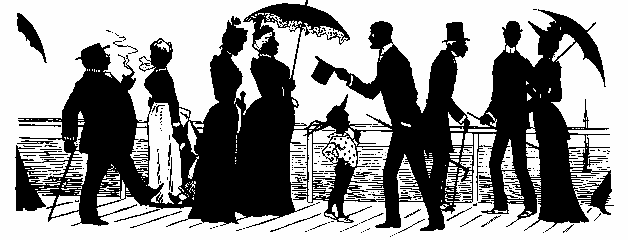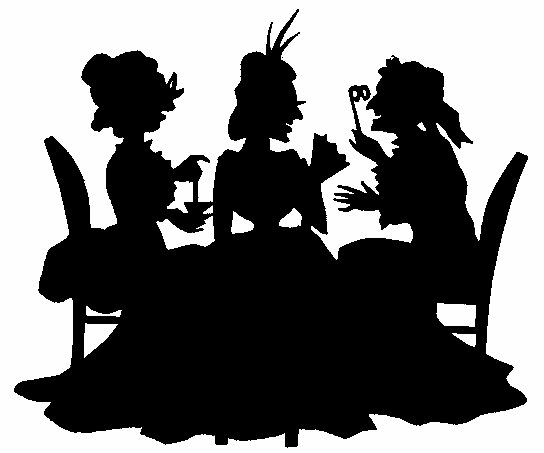
Naming Your Characters
How many of us have belabored over finding just the right name for a character, only to have our critique group throw it back in our face with the claim, "It doesn't work for me." As much as we hate to admit a mistake, they may be right. After all, how many medieval knights were really named Billy? And how many Englishmen do you know named Aleksy?
Okay, so you promised your father to name the hero of your third book after him. You still can--but with a variation to the root--Alexander perhaps. Or is your hero Irish? Name him Alsandair. Is he Scottish? Name him Alastair. Three things to keep in mind when naming your characters are--the character's personality, his/her ethnicity, and the century in which they were born.
Know Your Characters
The first step in naming your characters is to know them. Names make impressions. That's why you should think long and hard over them. You want your readers to remember your characters' names long after they've finished reading the book. But before you can name your characters, you must know them inside and out. Create a thorough outline on each one. Analyze what motivates them, what makes them who they are.
Take your hero. Is he strong? Powerful? Wealthy? Muscular? Would you convey that impression with a name like Robin Tibbles? It's a traditional English name, and your hero is English. Or would Garrick Maxwell Atwater III better suit him? The longer a man's name, the more likely he will be considered honest and accomplished. What about your heroine? Is she confident and adventurous? Or is she sedate and well-mannered? Would the name Clover Darling be better for the former or latter? How about Elizabeth Knight?
Also determine your characters' ethnic backgrounds. Nothing is more jarring to the reader than coming across an Irish hero named Pedro. So if it's vital to the story that the hero is Irish, find an Irish name for him. (Unless his mother is Spanish, perhaps, and named him Pedro because it irritated the father's family who disowned him when he married a Spaniard . . . but that's another story.) If you aren't familiar with names from a particular country, investigate. Baby name books often include ethnic origins. Or read books by contemporary authors from the country in question. In other words, go directly to the source.
First Names
Once you know who your characters are, you can select an appropriate name for them. The way you name your characters falls into two categories--who they are, and where they come from. So you know your hero possesses all of the sterling qualities listed above. Will a name like Rickman suit him, then? Was your heroine born at night? Maybe her parents named her Starr because of it. Decide what qualifications your characters have that you want to come across most. Only you as the author know them well enough to do that.
Say the name aloud. Hard sounds like "t" or "s" will strengthen your character, while softer sounds like "d" or "b" will have a pleasanter ring. Think about the image you wish to convey. Ending the name on a hard sound--Kent or Brooke--would be stronger than Hugh or Ella.
If writing an historical, remember the setting/era of your novel. Ashley and Madison were once exclusively male names. Now, both are associated with females. If you aren't certain which names were popular when, visit your local library's genealogy section and read through old birth/death/marriage records. You will get a feel for the era by skimming through the files.
Surnames
Surnames didn't even exist before the 12th century. A man had his name and that's how he was known. By the 1100s, however, evidence of a second, or surname, exists. A man achieved that name in various ways--by the place of his birth, from his father (whether full or given name), by his occupation, or perhaps even by a nickname. Not everyone had surnames at once either. At first, they were taken or chosen by whomever wanted one. Some men even took combinations of the above, joining their estate name with their father's name possibly.
It wasn't until the 13th and 14th centuries that surnames became less elaborate, eventually evolving through the 17th century as the more recognizable form we know today.
English surnames derive chiefly from local or place names. Clifford, Oakman and Ellwood are all examples of this. Surnames of relationship could use either the father or mother's name as the root. The suffix -son was popular in the North of England, as in Johnson or Williamson. Surnames of occupation began with holders of the actual office, but eventually became hereditary. Steward, Dean and Sergeant were all occupations as well as surnames. The last type of surname origination is the nickname--a rare and seldom hereditary name. While some Barefoots, Prouds and Skippers have survived the centuries, few surnames bear this origin.
Can you borrow real surnames from local historical figures? Yes and no. If you are using that figure in your novel, you have to use the name. But be careful as to how you portray him/her. For a fictional character, yes, you can borrow real names. But rather than copy a name directly (Winston Churchill, for example, or the Duke of Wellington) change it a bit. You're more likely to avoid problems that way. And your character won't have to live up to another's reputation.
The same applies for titles in the case of English aristocracy. Rather than copy a title exactly, like the Earl of Spenser, create your own with an imaginary county/manor house/family name, etc.. But remember not to take away from the authenticity of the title. What are the odds of there being a Duke of Washington or a Marquess of Rouen in England?
Secondary Characters

Put as much thought into your secondary characters as you do your hero/heroine. Use the same rules here as above regarding country of origin and historical era, but names for secondary characters can be more colorful. Consider the eccentric Aunt Poppy and the non-descript Mr. Brown before saddling them with their names.
Above all, try not to confuse the reader. Don't have surnames of Johnson, Whitson, Fredrickson and Smithson just because they're all from Northern England. And while Mary, Maggie, Millie and Maisie are all cute names for siblings, unless each of the girls has a distinct personality trait, or they have very small parts in the book, the reader could get lost. Remember this when naming unrelated characters also. If the hero's name is Winston, don't have another character named Winthrop. And if the heroine's name is cross-gender (Jamie) don't give the hero a cross-gender (Chris) name also. You want your readers to enjoy your book, not labor over it.
Remember the Genre
Readers of a specific genre have certain expectations when they pick up a book. You, as the author, have to fulfill those expectations. Cactus Jack and One-eyed Bill might suit a Western, but would certainly be out of place in your romance. (Unless of course, it's set in the West and has some colorful secondary characters.) When choosing a name, think of what image that name conjures up. Rafe implies a very different type of personality than, say, Gimp. Just as Raven or Honey would for your heroine.
Finally, while you can spend hours searching for just the right name, don't be offended if a reader tells you she liked everything except the heroine's name. We all come to the book with past experiences, and those experiences may have included some not so pleasant memories of someone who bears the same name as a hero/heroine
.
![]()
For more information on this topic, see The Writer's Digest Character Naming Sourcebook by Sherrilyn Kenyon, and A Dictionary of English Surnames by P.H. Reaney, both available for purchase through our on-line
bookstore in the non-fiction section.For bibliographic information, visit the
Researching the Romance pages of Literary Liaisons.For on-line resources, visit the
Writer's Resources pages of Literary Liaisons.Top of Page | Articles Index | Home | Contact Us | Sign Our Guestbook
Copyright 1997, M. Hoppe